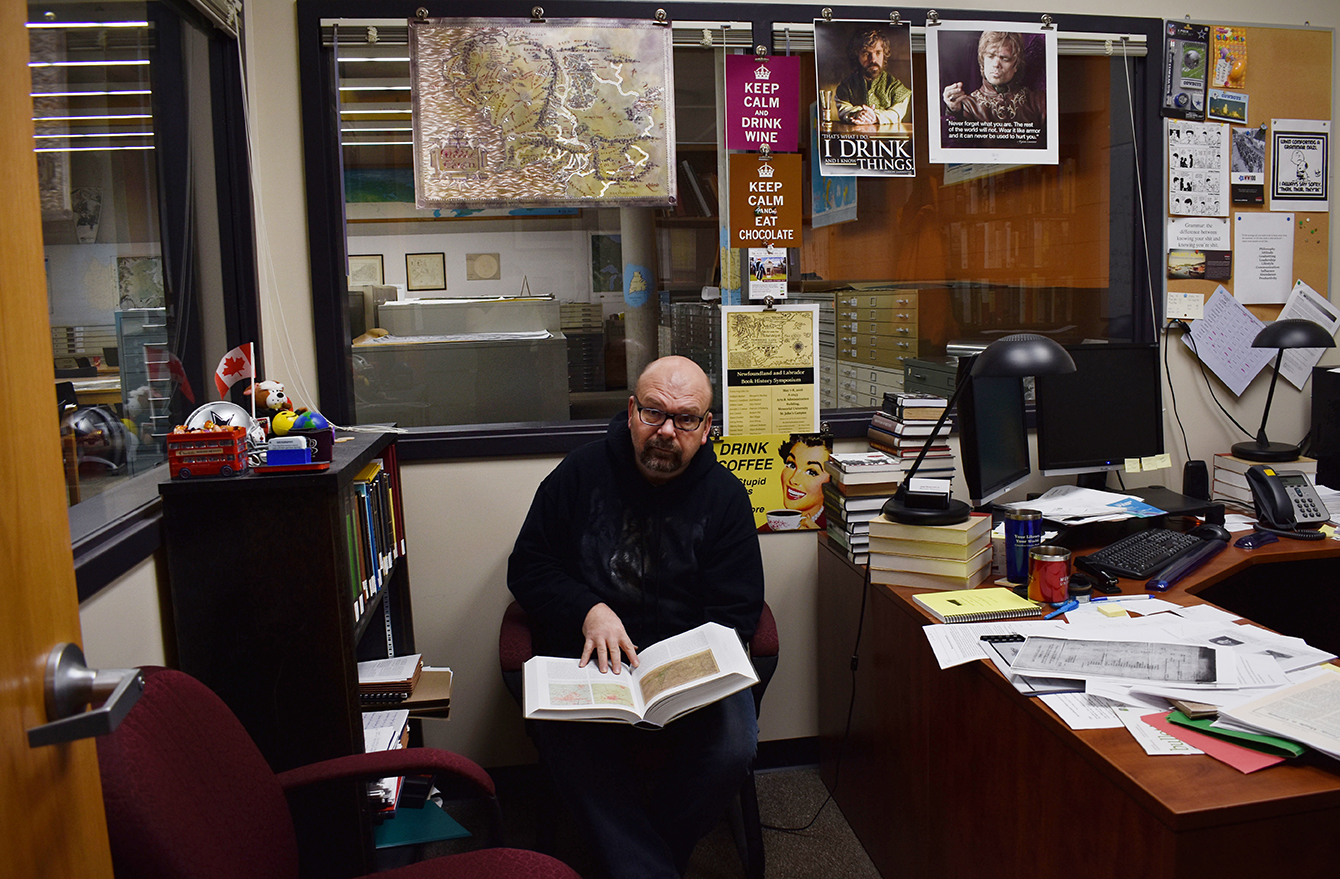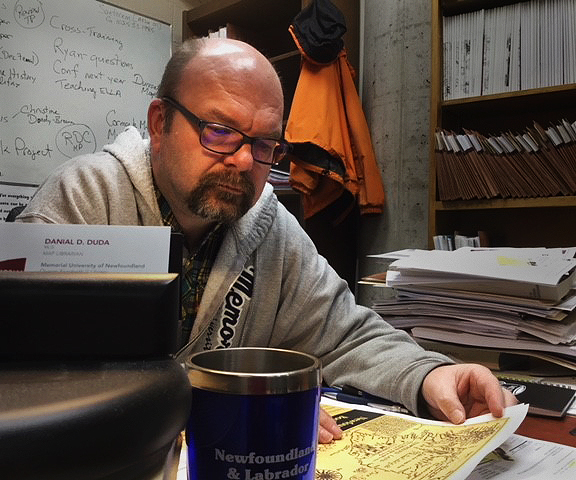Paper skin on wooden skeletons
Maps are a powerful source of commincation and history
Words and images by Melissa Wong
Danial D. Duda keeps a pressed flower as a bookmark because it reminds him why he became a map librarian.
One night, while Duda was on the night shift, a couple of students came into the map library looking somewhat haggard. They were frustrated with their assignment because they couldn’t find the information they needed.
In no time, Duda helped them find everything they needed. The women were relieved because they had been trying to find the information for days.
"What matters to me is being good to other people every day as much as possible," said Duda.
Grateful for his help, the pair offered to buy him a coffee. However, Duda had to decline the offer. He explained that he was not allowed to leave the desk while he was working, and food and drinks were not allowed within the library walls. The women left, but later they returned with a flower.
"I took that flower and flattened it and created my own little bookmark to remind me of why I do this job, which is to help people find what they need to do their work," Duda said. "You do what you need to do because there are those moments that are very hectic as well as very rewarding."
Duda’s desire to aid others has also been a benefit to his co-workers, such as David Mercer.
Mercer is a cartographer, library assistant and geographic information system specialist at the Memorial University map library who first met Duda in 2000 during a conference in Edmonton.
"I think I probably am the first Newfoundlander he met," said Mercer.
Mercer calls him inspirational.
"He always seems to find the positive in a situation and it's his appreciation for maps that reinvigorates how I feel about maps," said Mercer.
Mercer and Duda were both a part of the initial team working on the Lasting Remembrance: Newfoundland, Labrador and War, a digital project about the Newfoundland Regiment during the First World War.
"Dan has a wonderful appreciation for the history of cartography and everything that has gone into maps as we know them today," Mercer said. "For someone who does not really have a geographic background, his background is more history, he has a wonderful appreciation for the geographic relationships that go into maps and I think that is something that is really special."
When asked about what values a map librarian should have, Duda took a moment before responding as he carefully summed up his thoughts.
"The idea of a librarian is partly to ensure that information is protected and saved, but then for what purpose?" Duda said. "Throughout history, libraries have been taken as trophies of war and moved about among different cultures and then nobody has access to it. I don't believe in that, I believe it is there to be used by and for everybody.
Each day is different. The only constant in his work life is helping someone find information using the library's system.
Duda oversees university students and his maps through the large windows in his office at the back of the map library.
"Maps are a powerful source of communication," Duda said.
"That's what makes maps very interesting to me," Duda said as he rubbed his hand over his balding head before clasping his hands together and resting them on his light blue polo shirt.
Maps, he said, tell a story beyond what they were intended for.
Duda grew up in Sexsmith, just north of Grande Prairie in northern Alberta. His family owned a mixed farm that grew grain and raised cows and chickens. He was the youngest of five children who from a young age loved to read.
"My mother always had a love of reading," Duda said as he stroked his goatee with his right hand. "My mother and my uncle … that is where I got my interest in history and reading …”
At 18 -years -old, Duda left home to go to the University of Alberta. He started an engineering degree but switched to a history major after his first year.
While he was an undergraduate student, Duda won a major scholarship.
"The professors applied on my behalf because they thought I was worthy," Duda said thoughtfully as he leaned back in his comfortable looking black chair.
As an undergrad, he took a student job at the University of Alberta's library. After graduating in 1987 with an honours degree in history, he began working in the circulation unit of the University of Alberta's science library. It was there he was first introduced to maps.
In 1997, Duda started his library degree. He has worked at libraries across the country.
Whether digital or computer maps, Duda keeps them all organized.
"My main job is to collect maps and keep the collection in order and then help people find what they need," said Duda after taking a long sip of his coffee.
"Many librarians have scanned maps and thrown out the paper ones because they take up storage space."
—Danial Duda
Many map libraries across Canada have replaced paper maps with digital maps and as a result, some paper map collections throughout the country have been depleted or removed altogether.
"I don't agree with that in the long run because it's a major source of information that if we are not careful could be lost…well, a lot of historical information would be lost forever then,” he said.
Danial Duda
In the back corner of the library, opposite Duda's office, are the wooden skeletal remains of paper maps that each had once been rolled up on before their paper flesh had been ripped away.
"Let me explain it this way, any digital document only has a 10- to 20-year life cycle and it could be lost forever," Duda said opening his hands on either side of his crossed legs like butterfly wings.
Paper, he said, has been around for centuries.
“ Now once the digital side, if it gets to where it can be preserved for hundreds of years, then I have no qualms with getting all the paper digitalized. My concern is information and knowledge are lost along the way when we don't take the time to ensure the information on paper- whether it's a map whether it's a book- isn't lost."
Duda says digital mapping can be a wonderful thing that could be used to help society grow and learn more about maps online. People can learn how to use maps better online and understand history using [online mapping]. However, as a librarian, Duda wants to ensure that the information on paper is not lost because of the current limitations on technology.
"Digital mapping and working with the internet is a wonderful thing. It is like any other type of information, how it is used and why it is used is important." Duda said.


As a map lover, happy to see a nice, tidy piece about this aspect of geography, history, and communication. Great!